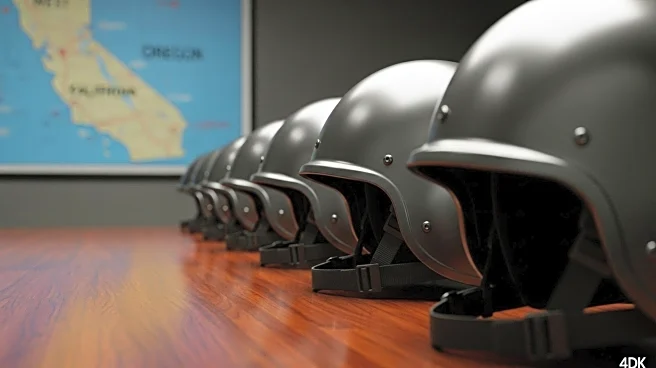What's Happening?
The Trump administration has begun deploying California National Guard troops to Oregon following a federal judge's decision to block the mobilization of Oregon National Guard troops in Portland. This move comes after a temporary restraining order was issued by Judge Karin Immergut, preventing the deployment of Oregon troops until October 18. Governor Tina Kotek of Oregon expressed concern over the lack of official communication from the federal government regarding the arrival of California troops. California Governor Gavin Newsom confirmed that up to 300 soldiers are being sent to Oregon. The deployment is part of President Trump's efforts to protect federal assets and personnel in Portland amidst ongoing protests. The Oregon Attorney General, Dan Rayfield, has indicated the state's readiness to pursue legal action to prevent further troop deployments.
Why It's Important?
This development highlights the ongoing tension between state and federal authorities over the use of military force in domestic situations. The deployment of troops from one state to another without the host state's consent raises significant constitutional questions about federal overreach and the balance of power. The situation in Portland, marked by protests and federal intervention, underscores the broader national debate on civil liberties and the appropriate use of military force in civilian contexts. The legal challenges posed by Oregon and California could set important precedents for how similar situations are handled in the future, potentially impacting federal-state relations and the interpretation of constitutional law.
What's Next?
The legal battle is expected to continue as both Oregon and California prepare to challenge the federal government's actions in court. The Ninth Circuit Court of Appeals may soon hear the federal government's appeal against the temporary restraining order. The outcome of these legal proceedings could influence future federal interventions in state matters. Additionally, public and political reactions to the deployment may shape the discourse on federal authority and civil rights. Stakeholders, including civil rights organizations and political leaders, are likely to weigh in on the implications of using military force in domestic protests.









